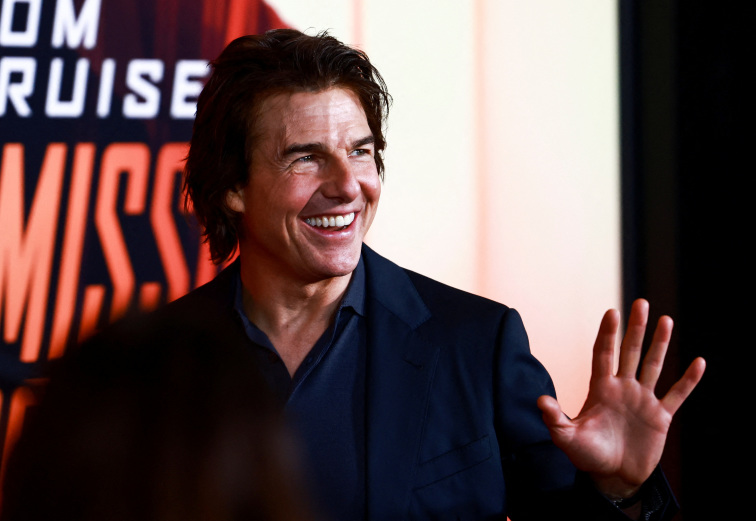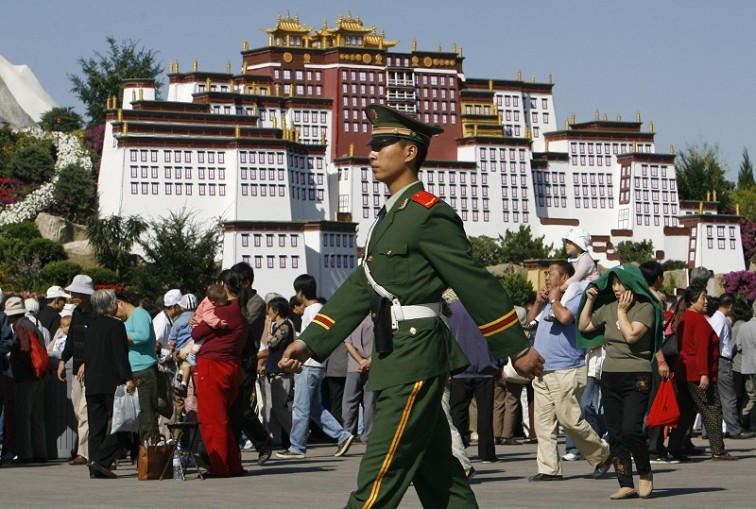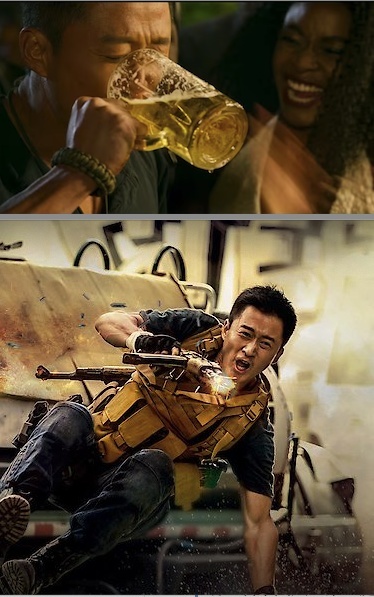Director Zhang Yongjin. (Photo: Zhou Rong / Dajiyuan)
[People News] Recently, State Organs documentary director Zhang Yongjin gave an interview to Dajiyuan, in which he discussed his motivation for making the film, audience reactions, the Chinese Communist Party’s (CCP) fear of it, and his personal reflections. He particularly emphasised the enlightenment the film brings—how life can be redeemed.
According to reporters Li Jiesi and Chang Chun, the film has won multiple awards, including Best Director and Best Music at the 2023 Canada Lions Film Awards, Best Human Rights Documentary at the Manhattan Film Festival, and Best Documentary at the New York True Creation Film Festival.
Never Again
Why make State Organs? Zhang Yongjin told reporters that his interviews with Dr. Zheng Zhi left a deep impression on him, which motivated him to create the film.
In 1994, Dr. Zheng was a medical intern at Shenyang Army General Hospital when he was ordered to participate in a live organ harvesting operation. He later escaped to Thailand and eventually made his way to Canada, living under a false identity. Over a decade later, he revealed his experience in the media and became a key witness in State Organs.
Zhang recounted that during his first interview with Zheng in 2016, the doctor said it felt like his soul had been transported back to the organ harvesting scene, reliving the trauma.
"The interview was extremely difficult. Due to a mental breakdown, he repeatedly rushed to the bathroom and turned on the tap water." After a long time, Zhang heard him crying inside, and the interview had to be paused.
The next day, after 17 years in hiding, Dr. Zheng decided to go on camera. Zhang considered digitally concealing his face for safety, but Zheng said, "No need. Using my real name and identity will be more convincing." Zhang recalled, “At that moment, he seemed to have a sense of mission.”
After the interview, Zheng told Zhang that he had lived in constant fear, plagued by nightmares and a persistent sense of being hunted. However, after the interview, that overwhelming pressure and fear suddenly vanished. He felt as if his life had been "redeemed."
Zhang admitted that he didn’t initially understand what Zheng meant by “redemption.” “I saw a complex expression in his eyes—fear and worry, but also courage and determination.” This inspired Zhang to present it all through the documentary.
Although the CCP's forced organ harvesting is a widely discussed issue, Zhang noted that few documentaries or films truly reflect this topic. “I wanted to tell this major historical event from the perspective of victims and their families, hoping that such tragedies never happen again.”
After World War II, the international community pledged “Never Again” to genocide. Yet, under CCP rule, a genocide involving forced organ harvesting has occurred. Zhang said people still have a chance to change this ongoing history.
“If each person tells others—including political leaders—what they see and hear in State Organs, we might help people in mainland China live safer lives, and make the world more peaceful and stable. That was one of my initial intentions in making this film.”
From his 2016 interview with Zheng to the film’s completion in 2023, Zhang reviewed all available reports and videos on CCP organ harvesting. His team conducted extensive interviews, recording over 1,000 hours of material, from which 100 hours were usable. It took six to seven years to reach the film’s rough cut.
“Documentaries don’t have scripts. As you interview more people, new leads emerge. The story only becomes clear once most interviews are done—that’s why it took so long,” he explained.
In State Organs, Zhang tells the story of two young people who disappeared after being detained and their families' desperate search. Through numerous interviews with victims and witnesses, including Dr. Zheng, he exposes the horrific 25-year-long mass harvesting of Falun Gong practitioners’ organs by the CCP.
A Journey of Salvation
Since July of last year, State Organs has been screened over 700 times in Taiwan, generating a strong public response. Viewers were shocked by the dark truths revealed, but many also experienced deep reflection.
Zhang said many people watched the film multiple times, discovering something new with each viewing. Some saw it as a portrayal of spiritual awakening among ordinary people.
He gave the example of an armed police officer who, while guarding a Falun Gong practitioner being harvested alive, witnessed the victim hold firm to their faith until the end. This deeply shook him and led to profound remorse over his own actions.
Zhang Yongjin stated that before Jesus was crucified, He saved the two thieves beside Him. That armed police officer had a similar experience of redemption.
“Dr. Zheng, too, transformed—from a doctor who once performed organ harvesting to a witness of state crimes. His was also a journey of salvation.”
Upon completing the film, Zhang revisited the entire production process and gained a new understanding of what “redemption” meant. Having grown up in a military family in mainland China and later moved overseas, he realised that he still carried elements of the CCP’s ideological influence. Through the filmmaking process, he began identifying and eliminating those influences within himself.
“For me, the whole journey was also one of saving myself. I really cherish it. I believe that if I could go through this transformation, others can benefit from it too.”
The CCP’s Fear
Did this powerful documentary that exposes the CCP’s organ harvesting crimes encounter resistance during screenings? Zhang Yongjin said that the Taiwanese distributor of State Organs told him that after the film premiered in Taiwanese theatres in October of last year, they received death threats. The threatening letters included photos of guns and bullets. The threats escalated: initially sent to theatres, then to media outlets, warning that if they didn’t remove reports about the film, their buildings would be bombed. Some government agencies were also threatened simply because their venues had been rented to screen the film.
Zhang heard that local police conducted a sweep and found no explosive or lethal materials. Eventually, it was discovered that the threats had been issued from overseas using VPNs—typical tactics employed by cyber agents to disrupt normal life in Taiwan. More recently, Taiwan’s police determined that the death threats originated from the Xi’an area in China, near a Huawei facility.
According to media reports, from October 2024 to March 2025, over 100 death threat letters were sent to cinemas, media outlets, legislators, and others in Taiwan.
The incident caused a major public outcry in Taiwan. On November 27, 2024, in response to the threats surrounding the State Organs screenings and the CCP’s "long-arm jurisdiction" strategy targeting Taiwan, the Legislative Yuan’s Foreign Affairs and National Defense Committee held a special briefing with representatives from the National Security Bureau, Mainland Affairs Council, Ministry of Culture, and other agencies.
Taiwanese politicians, film and television industry professionals, media figures, and influencers with millions of followers voiced strong support for the film, condemned the CCP’s intimidation, and stood up for spreading the truth. The public in Taiwan rallied behind the slogan: “Truth Protects Taiwan.”
Zhang Yongjin said that many people, even after hearing about the death threats, still risked their safety to go to theatres to watch the film. “This filled me with confidence in Taiwan’s freedom and democracy.”
He believes the film resonates strongly with viewers for several reasons:
First, he used a lot of symbolic imagery and metaphors in his artistic treatment to avoid showing graphic violence, which could have created psychological barriers for viewers.
Second, his purpose in making the film wasn’t to persuade or prove anything. “My responsibility is to present the facts truthfully and accurately, so the audience can draw their own conclusions.”
Third, after braving the risks to watch the film, viewers would naturally reflect on its content, engage in logical thinking, and potentially take action.
He said this is exactly what makes for “a complete cinematic experience,” and that’s why viewer engagement is so strong.











News magazine bootstrap themes!
I like this themes, fast loading and look profesional
Thank you Carlos!
You're welcome!
Please support me with give positive rating!
Yes Sure!